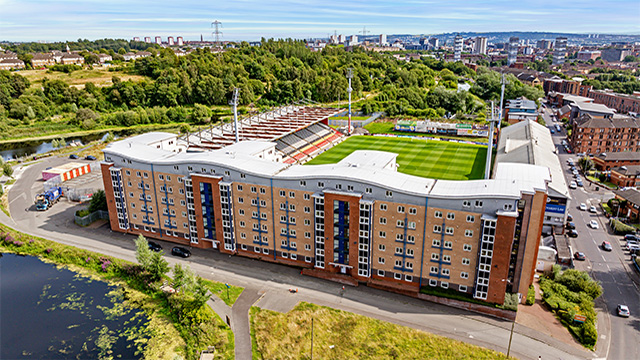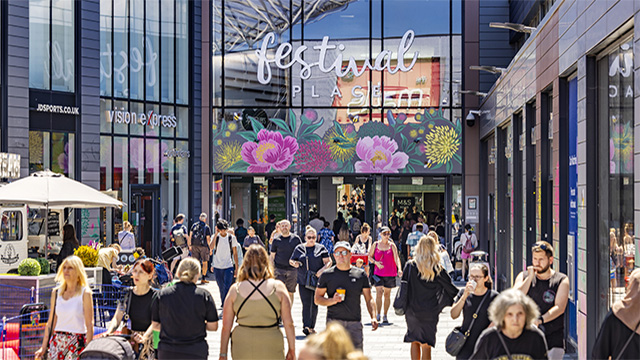Should government turn to real estate to support the asylum system?
COMMENT The government is currently spending an estimated £6m per day on housing asylum seekers, largely directed towards the hotel industry. It is an extraordinary amount to spend on accommodation, yet beyond providing basic shelter, it is hard to see the value in this arrangement on both a financial and humanitarian level. Recent political discourse around asylum seekers has made this topic uncomfortable to engage with, but given the clear inefficiencies in the system and missed opportunities for improvement, I believe it’s an issue the real estate sector should be more engaged in.
I witnessed first-hand the plight of asylum seekers and the system they are part of during a recent visit to a hotel in Putney, SW15, with a local charity named Regenerate. The hotel is currently accommodating 30 female asylum seekers from around the world at a cost of £120 per night. These women largely remain in their rooms throughout the day, with only basic provisions provided. During my visit, I joined the group on an outing to a community centre with Regenerate – their sole organised communal activity each week. Apart from this limited engagement, the women’s access to other activities or resources is restricted owing to an allowance of just £8 per week and a lack of contact or connections within the local area.
Lack of efficiency
COMMENT The government is currently spending an estimated £6m per day on housing asylum seekers, largely directed towards the hotel industry. It is an extraordinary amount to spend on accommodation, yet beyond providing basic shelter, it is hard to see the value in this arrangement on both a financial and humanitarian level. Recent political discourse around asylum seekers has made this topic uncomfortable to engage with, but given the clear inefficiencies in the system and missed opportunities for improvement, I believe it’s an issue the real estate sector should be more engaged in.
I witnessed first-hand the plight of asylum seekers and the system they are part of during a recent visit to a hotel in Putney, SW15, with a local charity named Regenerate. The hotel is currently accommodating 30 female asylum seekers from around the world at a cost of £120 per night. These women largely remain in their rooms throughout the day, with only basic provisions provided. During my visit, I joined the group on an outing to a community centre with Regenerate – their sole organised communal activity each week. Apart from this limited engagement, the women’s access to other activities or resources is restricted owing to an allowance of just £8 per week and a lack of contact or connections within the local area.
Lack of efficiency
The visit brought home to me the lack of both efficiency and empathy within the system. Despite the Home Office spending £120 per night, the hotel appeared to provide minimal services. The nature of a hotel’s design isolates asylum seekers in their rooms, with no communal spaces for gathering. Moreover, there are no support services or avenues for community connection beyond the accommodation itself, depriving asylum seekers of meaningful opportunities to establish connections within the local area
One of the women I met on the visit was a medical doctor from Iran who had been in the hotel facility for four years. She was intelligent, positive and genuinely yearning to offer her expertise to the local community in some way. Asylum seekers are unable to do paid work while their claims are being assessed, but they are able to volunteer. Indeed, Home Office guidance encourages this, stating: “Asylum seekers are encouraged to volunteer whilst their claim is being considered… By volunteering for a charity or public sector organisation, asylum seekers can support their local community.”
Sense of belonging
In theory, volunteering could not only provide asylum seekers with a sense of belonging and worth, but also bring a range of benefits to local communities by putting their skills to good use. In practice, however, there doesn’t seem to be any enabling network or infrastructure to support this activity, and it would be something the asylum seekers themselves would need to arrange. That’s almost impossible on a budget of just £8 a week, which would need to cover travel, internet or mobile phone access, plus any food outside the hotel, if they were to go out into a new environment and volunteer.
The areas for concern I have outlined here – basic accommodation, social isolation, lack of community integration – all feel like a function of the hotel asset class the government has selected for the task of housing asylum seekers. These same areas for concern also strike me as challenges the real estate sector would excel at resolving. Our sector has ingenuity, flexibility and a long-standing track record of successful public-private partnerships that deliver value on investment, improved living conditions and cohesive communities. Rather than channel such large sums of money into a hotel sector beset by shortcomings, I find myself confused as to why the government has not sought to leverage the expertise and resources of the real estate sector in any meaningful way.
Collaborative approach
The only notable movement on this front appears to be the government’s efforts to engage more private landlords in accommodating asylum seekers. In March, legislation was amended to waive standard HMO regulations for asylum-seeker housing, ostensibly to encourage landlord participation. However, this approach seems to be primarily driven by cost-saving measures and does not address the underlying problems at hand. Furthermore, the removal of basic accommodation requirements raises legitimate concerns, as it may expose the system to unfit landlords and exploitation. Why shouldn’t an asylum seeker be entitled to the same safe and secure living conditions as any other member of our society?
Instead of this piecemeal approach involving individual private landlords, surely there is a broader opportunity to involve the creative thinking of larger landowners, developers, housing associations and asset managers. Progressive, community-focused property companies represent the most successful operators in the sector. At Lowe Group we witness on a daily basis the positive impact of repurposing real estate for habitation and taking a people-orientated approach.
Collaboration with the real estate sector has the potential to deliver better value for money, treat people with humanity and empower asylum seekers to become active contributors to society. I urge the government to engage with the real estate world and explore ways of harnessing the connections, community focus and commitment to thoughtful accommodation that are the backbone of our industry.
Tim Lowe is managing director of the Lowe Group










